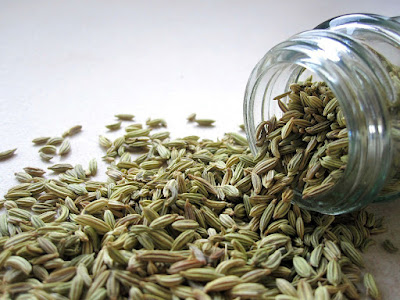Here are the Top 10 Fruits That Promote Insulin Sensitivity:
Berries: Berries such as strawberries, blueberries, raspberries, and blackberries are rich in antioxidants and fiber, which can help improve insulin sensitivity and reduce inflammation.
Apples: Apples are high in fiber and polyphenols, which can help regulate blood sugar levels and improve insulin sensitivity.
Pears: Pears are also high in fiber and polyphenols, making them a good fruit choice for improving insulin sensitivity.
Kiwi: Kiwi is a good source of vitamin C, which has been shown to improve insulin sensitivity.
Grapefruit: Grapefruit is low in calories and high in fiber, making it a good fruit choice for improving insulin sensitivity.
Oranges: Oranges are high in vitamin C and fiber, which can help regulate blood sugar levels and improve insulin sensitivity.
Cherries: Cherries are rich in anthocyanins, which have been shown to improve insulin sensitivity.
Plums: Plums are high in fiber and polyphenols, which can help regulate blood sugar levels and improve insulin sensitivity.
Guava: Guava is high in vitamin C and fiber, making it a good fruit choice for improving insulin sensitivity.
Papaya: Papaya is a good source of fiber and contains compounds that have been shown to improve insulin sensitivity.
It is important to note that while these fruits can help improve insulin sensitivity, it is also important to limit the intake of fruits high in sugar such as bananas, grapes, and mangoes, as they can raise blood sugar levels. A balanced and healthy diet that includes a variety of fruits and vegetables is the best way to maintain good health.
Fitness Health Weight Loss Guru - Advice On Fitness, Health, Lose Weight, Belly Fat Loss, Fit Abs Workouts, Fitness Gyms, Healthy Diets, Belly Fat Burning Foods, Back Pain Exercises And Energy To Look And Feel Younger.
Thursday, April 27, 2023
Top 10 Fruits That Promote Insulin Sensitivity
Thursday, April 20, 2023
Boost Your Weight Loss With Fennel Seeds
Fennel seeds, is a common spice used in Indian cuisine and have been used for their medicinal properties for centuries. These tiny seeds are packed with a variety of health benefits, including aiding in weight loss and promoting good stomach health.
Weight Loss Benefits
Fennel seeds are a great natural weight loss aid due to their diuretic and metabolism-boosting properties. They help to reduce water retention in the body, which can lead to bloating and a feeling of heaviness. Additionally, fennel seeds contain compounds that stimulate the production of digestive enzymes, which can help speed up the metabolism and aid in the breakdown of fats.
Stomach Health Benefits
Fennel seeds are also known for their beneficial effects on digestive health. They contain compounds that help to relax the muscles in the gastrointestinal tract, which can help relieve symptoms of bloating, gas, and indigestion. Fennel seeds can also help to improve the production of gastric juices, which can aid in the digestion of food and prevent acid reflux.
Anti-Inflammatory Properties
Fennel seeds also have anti-inflammatory properties due to their high concentration of antioxidants. These antioxidants help to neutralize harmful free radicals in the body, which can contribute to inflammation and the development of chronic diseases. Studies have shown that fennel seeds can help reduce inflammation in the body, which can help prevent conditions such as arthritis, asthma, and certain types of cancer.
Other Health Benefits
In addition to their weight loss and stomach health benefits, fennel seeds have a variety of other health benefits. They are a rich source of vitamins and minerals, including vitamin C, potassium, and calcium. Fennel seeds also contain compounds that can help improve brain function and lower blood pressure, making them a great addition to a healthy diet.
How to Incorporate Fennel Seeds into Your Diet
There are many ways to incorporate fennel seeds into your diet. They can be added to soups, stews, and curries, or used as a seasoning for meats and vegetables. Fennel seeds can also be used to make a tea, which can be enjoyed on its own or mixed with other herbs and spices.
Conclusion
Fennel seeds are a highly nutritious and versatile spice that can provide a variety of health benefits. Whether you are looking to lose weight, improve your digestive health, or reduce inflammation in the body, fennel seeds are a great addition to any diet. So why not start incorporating this wonderful spice into your daily routine today?
Wednesday, April 12, 2023
The Difference Between Weight Loss And Fat Loss
The Difference Between Fat Loss And Weight Loss
Weight loss and fat loss are two terms that are often used interchangeably, but they refer to different things.
Weight loss refers to a reduction in overall body weight, which can be caused by a variety of factors such as loss of body fat, loss of muscle mass, loss of water weight, or a combination of these factors.
Fat loss, on the other hand, specifically refers to a reduction in body fat percentage. This means that the amount of body fat in relation to overall body weight has decreased.
It's important to note that weight loss doesn't necessarily equate to fat loss, as losing weight can come from a reduction in both fat and muscle mass. In fact, some weight loss programs may lead to muscle loss instead of fat loss, which can actually be detrimental to overall health and fitness.
Therefore, when it comes to achieving optimal health and fitness, it's important to focus on fat loss rather than just weight loss. This can be achieved through a combination of regular exercise, a healthy and balanced diet, and a sustainable lifestyle that promotes long-term weight management. Resistance training and high-intensity interval training (HIIT) can be particularly effective for reducing body fat while preserving lean muscle mass.
In summary, while weight loss refers to a reduction in overall body weight, fat loss specifically targets a decrease in body fat percentage. It's important to focus on sustainable fat loss rather than just weight loss for optimal health and fitness outcomes.
Thursday, April 6, 2023
Does Heart Health Improve With Weight Loss
Yes, heart health can improve with weight loss. There is a strong correlation between excess weight and a number of risk factors for heart disease, including high blood pressure, high cholesterol, and insulin resistance. By losing weight, these risk factors can be improved, leading to better heart health.
Here's the science behind it: Excess weight, particularly around the abdomen, can cause the body to become resistant to insulin, which can lead to high blood sugar levels and an increased risk of type 2 diabetes. This, in turn, can lead to an increased risk of heart disease, as high blood sugar levels can damage blood vessels and increase inflammation throughout the body.
Additionally, excess weight can lead to high blood pressure, which can also increase the risk of heart disease. This is because the heart has to work harder to pump blood through the body when blood pressure is high, which can put strain on the arteries and increase the risk of damage to the heart and blood vessels.
Finally, high levels of LDL (bad) cholesterol and low levels of HDL (good) cholesterol can also increase the risk of heart disease. Excess weight can contribute to high levels of LDL cholesterol, while losing weight can help to lower LDL cholesterol levels and increase HDL cholesterol levels.
When weight loss occurs, particularly when it is achieved through a healthy and balanced diet and regular exercise, these risk factors can be improved. For example, losing weight can help to reduce insulin resistance, lower blood sugar levels, and improve blood pressure. Additionally, weight loss can help to lower LDL cholesterol levels and increase HDL cholesterol levels, leading to better heart health overall.
It's important to note that weight loss should always be done in a healthy and sustainable way, and that it is just one piece of the puzzle when it comes to improving heart health. A healthy and balanced diet, regular exercise, stress management, and other lifestyle factors are also important for maintaining heart health over the long-term.



